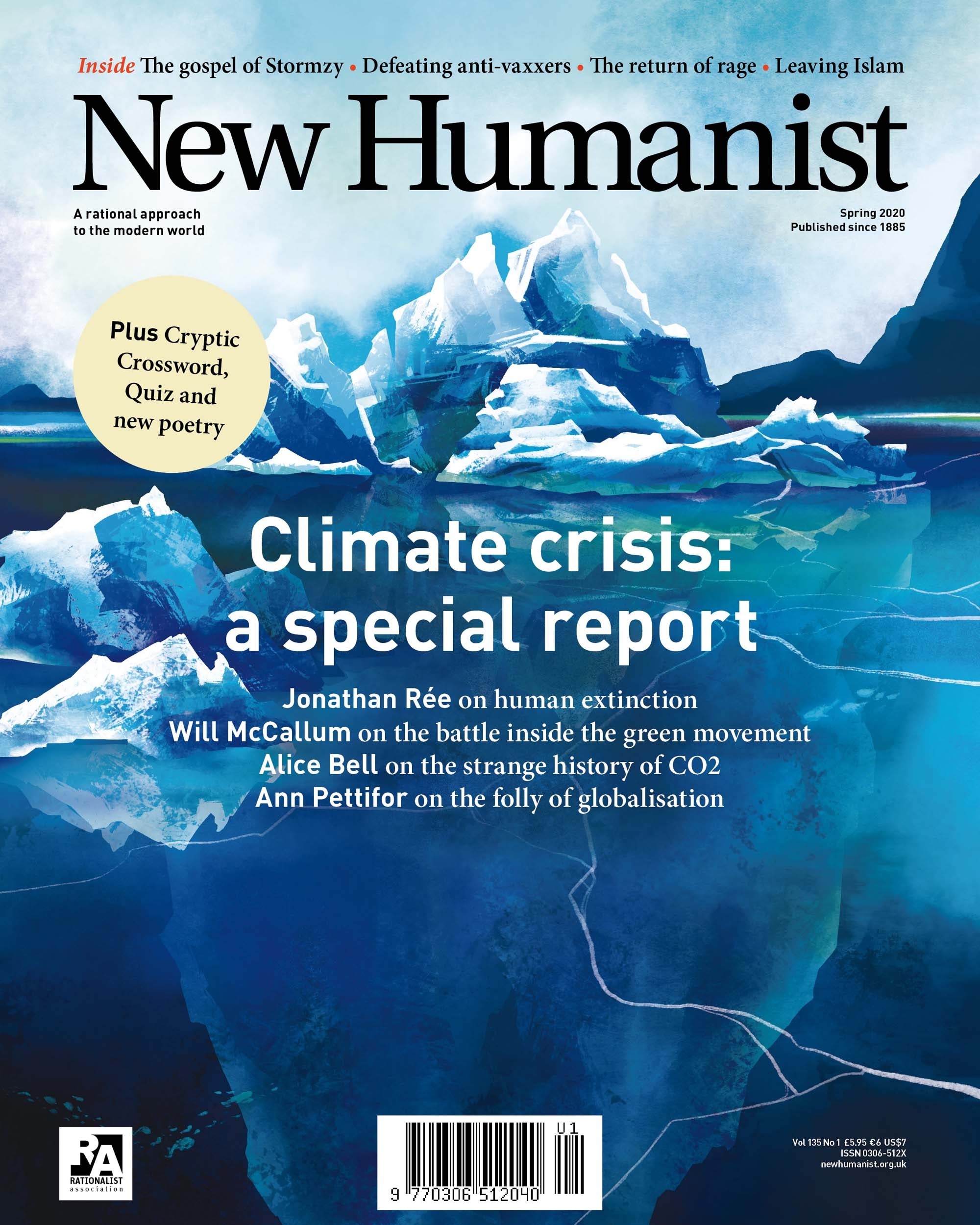
The spring 2020 issue of New Humanist is on sale now! Subscribe here for as little as £10 a year.
Climate crisis: a special report
Pushed to the limit
Grappling with the climate emergency is hard enough. Do we even deserve to survive? by Jonathan Rée
When it comes to climate change, we can, it seems, calculate to our heart’s content. But if David Wood is right, calculation will never bring us to the heart of the matter. In his deeply impressive new book, "Reoccupy Earth", Wood argues that our everyday intellectual resources are not equal to the task of comprehending the present crisis. Calculation is not enough, he says, and what we need is a good strong dose of philosophy.
Battle lines
Climate change needs radical action - but a sharply polarised debate is stifling progress. How do we break the impasse? by Will McCallum
The challenge of the next few years is how to strike the balance between treating environmental issues with the radical urgency required, whilst not allowing the debate to become so polarised that it stifles all progress. The analogy that comes to mind is that of two people passing someone drowning in a river, and in debating the perfect way to save them, miss the fact that they have slipped under water.
The definite particle
How did carbon dioxide go from a 19th-century health fad to planet-destroying pariah? by Alice Bell
As citizens of the 21st century, carbon dioxide haunts our lives. Footprints, emissions, offsets, budgets, fights over whether we need to give up meat or flying (spoiler: you probably do), and a gripping fear about what it means for the future. We learn from an early age that humans breathe in oxygen and breathe out carbon dioxide – two carbon atoms nestled with one of oxygen. We know other animals do the same, and plants do things the other way around. It is part of how we understand the world around us.
But until the middle of the 18th century, no one realised that carbon dioxide existed at all.
The Q&A: Ann Pettifor
J.P. O'Malley talks to top economist Ann Pettifor about her new book The Case for the Green New Deal.
To manage emissions we must manage the flow of credit. Right now, that is left to the invisible hand of unregulated market forces. Environmentalists typically say: our concern is with trees, water, the landscape, and with our natural system. But it’s wrong to think about emissions in isolation.
The spring 2020 issue of New Humanist is on sale now! Subscribe here for as little as £10 a year.

Also in this issue:
- Caspar Melville asks why so many British pop stars are so keen to proclaim their commitment to Christianity
- Peter Salmon on the German philosopher Peter Sloterdijk and the return of rage
- The anti-vaxxer movement has been blamed for a sharp rise in measles in the UK - but is there more to it, asks Richard Scorer?
- Ken Worpole on the complex truths of the Kindertransport
- Malaysians who wish to leave Islam face both legal and social challenges. Preeti Jha reports
- Paul McNicholas on the hymn "Now thank we all our God" and its curious back story
- At the turn of the 20th century, W.E.B. Du Bois used data to fight back against scientific racism. Lola Okolosie reviews an exhibition of his work
- Alice Bloch on J. Robert Lennon's Mailman and the long history of the literary loser
- Caroline Crampton on the rise and rise of subtitled TV drama
- PLUS: Columns from Michael Rosen, Laurie Taylor and Marcus Chown, book reviews, the latest developments in biology, chemistry and physics; cryptic crossword and Chris Maslanka's quiz
New Humanist is published four times a year by the Rationalist Association, a charity founded in 1885. Our journalism is fiercely independent and supported entirely by our readers. To make a deeper commitment, why not donate to the Rationalist Association?

